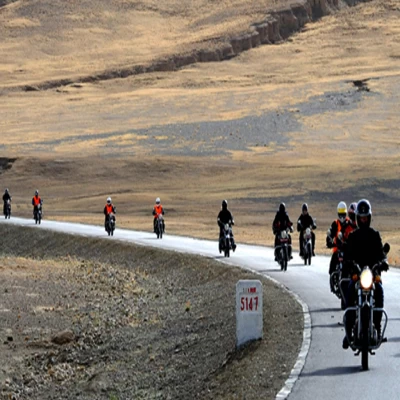Visiting Tibet can be a unique and enriching experience, but it requires careful planning due to its remote location and special entry regulations. Here are the general steps to help you prepare for your visit to Tibet:
How to Visit Tibet? Essential Things need to know before Coming Tibet?
Table of Contents
Obtain necessary permits
Foreign visitors are required to have a Tibet Travel Permit, which is issued by the Tibet Tourism Bureau. To get this permit, you must book a tour with a registered travel agency in Tibet. They will arrange the necessary permits for you based on your travel itinerary.
Choose a reputable travel agency
Select a reliable travel agency that is experienced in organizing tours to Tibet. They will help you with the necessary arrangements, including obtaining permits, booking accommodations, and arranging transportation.
Access to Tibet
Most travelers enter Tibet from mainland China. You can either take a flight to Lhasa, the capital of Tibet, or take a scenic train journey from major Chinese cities like Beijing, Shanghai, or Chengdu.
Acclimatize to the altitude
Lhasa is at a high altitude, so it's crucial to acclimate properly to avoid altitude sickness. Take it easy for the first few days, drink plenty of water, and avoid strenuous activities.
Plan your itinerary
Work with your travel agency to create an itinerary that suits your interests and available time. Tibet offers a variety of attractions, from the iconic Potala Palace and Jokhang Temple to the stunning landscapes of Namtso Lake and Mount Everest Base Camp.
Respect local customs and culture
Tibet has a rich cultural heritage and a deeply spiritual way of life. Respect local customs, dress modestly, and be mindful of religious practices when visiting monasteries and other sacred sites.
Pack appropriately
Pack warm clothing, as temperatures can drop significantly, especially at higher altitudes. Don't forget essentials like sunscreen, sunglasses, and a good pair of walking shoes.
Be prepared for limited internet access
Internet access can be limited in certain areas of Tibet. Inform your family and friends about potential communication challenges before your trip.
Follow travel guidelines
Stay updated on the latest travel regulations for Tibet, as they can change. Follow the guidelines set by your travel agency and local authorities to ensure a smooth and enjoyable trip.
Altitude Acclimatization
Tibet's average elevation is over 4,000 meters (13,000 feet), and some places like Lhasa are even higher. Altitude sickness is a real concern, so it's essential to take it easy for the first few days, drink plenty of water, and avoid strenuous activities.
Best Time to Visit
The best time to visit Tibet is from April to October when the weather is milder and most areas are accessible. However, keep in mind that Tibet can be crowded with tourists during peak season.
Limited Internet Access
Internet access in Tibet can be limited, especially in more remote areas. Don't expect the same level of connectivity as in major cities.
Respect Local Customs
Tibet has a unique culture and a deeply spiritual way of life. Respect local customs, dress modestly, and be mindful of religious practices when visiting monasteries and other sacred sites.
Environmental Considerations
Tibet's delicate ecosystem requires responsible tourism. Avoid leaving trash behind and respect the natural environment during your visit.
Currency and Banking
The local currency in Tibet is the Chinese Yuan (CNY). Make sure to carry enough cash, as ATMs are limited, especially in more remote areas.
Language
Tibetan is the primary language, but Mandarin Chinese is widely spoken, especially in urban areas.
Accommodation and Food
Accommodation options in Tibet can vary, from basic guesthouses to luxury hotels in major cities. Tibetan cuisine is unique, and you'll have the chance to try traditional dishes like yak meat and butter tea.
Photography and Permits
Photography is generally allowed in most places, but some religious sites may have restrictions. Always ask for permission before taking pictures of people.
Sensitivity to Political Issues
Tibet has a complex political situation, and discussions about sensitive topics should be avoided to respect local sentiments.
Health and Insurance
Consider getting travel insurance that covers high-altitude regions and medical emergencies. Consult your doctor before traveling to ensure you're in good health for the trip.
By being well-prepared and respectful of local customs and regulations, you can make the most of your visit to Tibet and have a memorable and enriching experience in this extraordinary region.





